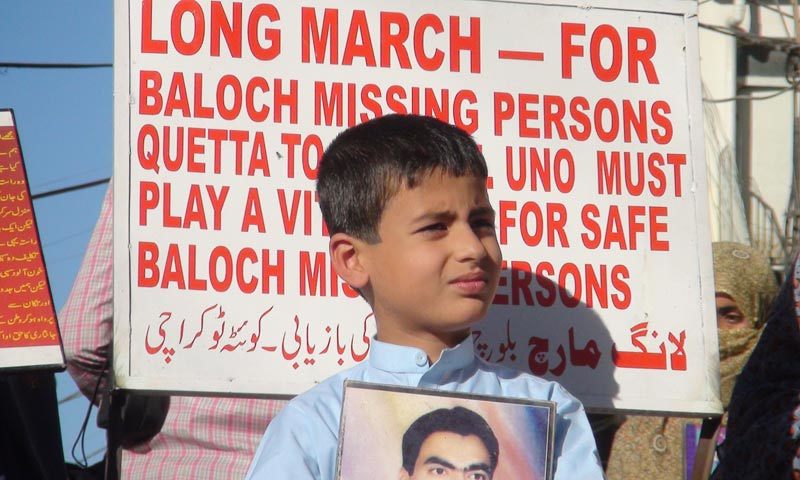Balochistan’s Gwadar region witnesses one of the largest ever protests recorded in the province. Having begun a month ago, the protests seem to a culmination of all the policies that have ended up in maladministration of the province. The concerns raised by the protests include access to clean water, illegal trawling, CPEC’s arbitrary policies and the fears of influx of outsiders into the region. As usual, the military is expected to diffuse the situation sooner or later; this does not take away attention from the past decades of misgovernance which resulted in the ongoing institutionalization of protests. In the backdrop of the seven-decade long insurgency, the presence of such grievances has also renewed focus on the legitimacy of Kalat’s accession to the dominion of Pakistan in 1948. This is not to question its legality on technical grounds, the reality remains that the coercion on the erstwhile ruler (who had a separate independent status distinct from other princely states) gave way to the continuation of similar tactics on the Baloch people at large.
This short article looks into the Human Rights situation in the province, particularly the Enforced Disappearances and the presence of Death Squads, the main issues plaguing Balochistan.
Enforced Disappearances
Enforced disappearance and Extra Judicial killings in Balochistan have developed a sense of insecurity among the common Baloch people. This issue has been at the top of the list of all the problems since the law enforcement agencies have been suspected for this case, in order to regulate and overpower insurgency in the province. The exact statistics of these enforced disappeared people remains debatable due to a deliberate under reporting. It was only in 1994 that the Human Rights Commission of Pakistan first looked into the issue of missing persons. The cases of missing persons saw an upsurge in the country following the 9/11 attacks in the US. Further, missing persons increased significantly after the killing of Nawab Akbar Bugti in 2006. The establishment’s response to Baloch nationalists and militants was to set up more military cantonments and outposts throughout the province. In the Marri and Bugti areas, these operations resulted in thousands of Internal displacements as well as migration across the Afghan Border. The government did attempt minimal firefighting through a general amnesty but the situation remained the same. According to a State Department report, “the federal Commission of Inquiry on Enforced Disappearances in Balochistan claimed 164 cases remained pending from 483 cases reported between March 2011 and March 2020”. In July 2020 only, the same report mentions that “45 individuals had disappeared and that assailants had killed 15 persons in seven districts [of the province]”.
Death Squads
Ethnic nationalism and popular unrest resulted in the formation of Death Squads, especially in the southwestern districts of Balochistan. Death Squads, which are believed to be unofficially supported by the forces linked to the deep-state have been used as a counter-weight against the insurgents and/or citizens accused of harbouring nationalist sentiments. The squads consisted of religious radicals, drug-smuggling networks and criminals picked up from members of the Baloch society to destabilise the insurgents. They are given tasks to harass, abduct and target and kill political and human rights activists, military critics and the common people with secular ideals. In return, they are given a free hand to blackmail and extort businessmen and indulge in the profitable drug trafficking from Afghanistan to Balochistan´s seashores. The illicit activities of these Squads have lately amplified to unparalleled levels mainly due to the Army outsourcing its genocidal policy to these convicts.
The districts of Balochistan notoriously associated with Death Squads are namely Mastung, Khuzdar, Kech, Panjgur, Awaran and Dera Bugti. It is unfortunate that despite international campaigns run by the Baloch Diaspora and grassroots activists, the international community is yet to acknowledge the presence of these squads.
Strengthening of the Taliban?
One of the lesser-known facets of Pakistan’s war against Balochistan is the strengthening of the Taliban, who have exploited the unstable, strife-ridden situation to establish bases and influence in the region. From these bases, the Taliban terrorise the often more liberal, secular Baloch people and enforce the Talibanization of parts of northern Balochistan, including the imposition of extreme versions of religious law. The Pakistani military frequently tolerates the Taliban, on the grounds that its presence acts as a second force to crush the Baloch people and weaken their struggle for independence. The Taliban is, in effect, a de facto proxy force that acts in the interests of Islamabad’s grand plan to suppress Baloch nationalism.
Resistance from common Baloch people
The analysis on the long-drawn violence towards various military and para-military forces in Balochistan needs a pragmatic estimation. The propaganda from institutions linked to establishment ‘policy’ enforcements need to be brought under proper light. The story of is the story of well-orchestrated state sponsored violence; human rights violation, brutality and viciousness.
The Baloch people, like all people everywhere, have a right to self-determination, democracy, human rights and social justice. The best way to resolve this issue would be for the government of Pakistan to authorise a UN supervised and monitored referendum to allow the people of Balochistan to freely and democratically determine their own future.
Image: dawn.com

